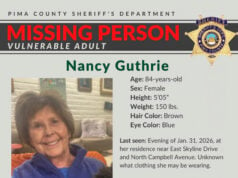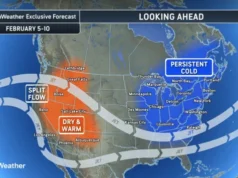
In most situations, we have more than enough time to prepare for natural disasters. Local TV stations will promptly inform you that a tornado or wildfire is coming, giving you ample time to evacuate your loved ones.
However, despite the warning, most people panic in these situations. They forget some of life’s necessities that would help them significantly in the following days. For example, it’s normal for misfortunate victims to forget their first aid kit or spare food.
This is why it’s so essential to create a solid plan ahead of time. By having a list of necessities in your hands, and doing other preparations, you’ll make the exit that much easier.
1. Learn About Local Disasters
First, you should learn about local disasters and how to react to them. Earthquakes and tornados might be common in your area, and your neighbors are already used to them. As such, you can get a few valuable by inquiring around.
For example, all US citizens should be ready to deal with floods, thunderstorms, and heat waves. Midwest and South/Southeast are known for tornados, hurricanes, and earthquakes. If you live in the Pacific region, you should count on massive earthquakes every few years. The Pacific zone is also threatened by landslides and tsunamis.
Even if natural disasters are uncommon in your area, there’s a chance you’ll feel secondary effects. For example, strong winds during wildfires might bring heavy smoke to your city. You might also have to think about the poor souls who have escaped from the affected area and have settled in your state.
2. Hire Experts
Some people like to play gods, but the truth is there’s little we can control in these situations. The best course of action is to take preventative measures to safeguard your property. In other words, you can spend some money on insurance to mitigate the financial consequences.
Unfortunately, having insurance doesn’t always help. The companies have a policy of trying to minimize their expenses, which is why they might argue against your claim. In these situations, it is a good idea to hire an earthquake or hurricane insurance lawyer (depending on the natural disasters), to assist you.
3. Minimize Damages
Even with insurance, you must do your best to minimize damages. Before disaster strikes, we urge you to take a walk around the property and check the following:
- See if tree branches are close to your windows and power lines. Trim them when necessary.
- Remove any objects from your backyard and driveway.
- Protect your water pipes to avoid potential bursts.
- Perform a complete checkup and, if possible, maintenance of your chimney, roof, and gutters. Remove any debris you might find.
- Assess your heating to see if the heat is distributed correctly throughout the vents.
- See if your storm shutters are working as intended.
4. Pack a Bag
You shouldn’t rely on the government to supply fresh water and food. Instead, you must prepare a large bag with all the necessities for the upcoming days. Make sure to have enough water and food for the entire family, as these will be your main priorities in the next few hours and days.
On top of that, you should pack the following items:
- A flashlight might be crucial during the night.
- With traditional, battery-powered radio, you can stay on top of relevant news.
- You’ll likely need spare batteries, as well.
- Depending on the disaster, you might need gas masks.
- A blanket or something else to keep you warm.
We also urge you to fill the batteries on your mobile phones and fill up the gas tank. If you’re suffering from some medical condition, don’t forget to buy enough medication to last you for two weeks.
5. Learn First Aid Basics
Let’s be honest; you won’t become a medical genius overnight. Nevertheless, if you have a few days to prepare yourself, you might as well learn some first aid basics. For example, everyone can learn to use a fire extinguisher in just a few days. You also have enough time to learn how to treat wounds and put on bandages.
If you have CPR training, it wouldn’t be a bad idea to brush up on your skills. It is something that might make a difference between life and death. Don’t forget to bring a first aid kit with you!
6. Post-Disaster
Taking correct post-disaster steps is every bit as important as preparation. For example, you don’t want to reenter your home if you’re not 100% sure everything’s safe.
The best course of action is contacting your insurance company. They’re the ones that should assess the damage and prevent further issues. This will also affect your ability to cash in the claim. We suggest you take a photo and video of the property as soon as possible.
There’s only so much we can do regarding natural disasters. Our best course of action is to keep everyone safe and, if we have the time, assist the neighbors. You have to be very careful when handling the damages and the claims to get as much money as possible from the insurance agency.
Disclaimer
The information contained in South Florida Reporter is for general information purposes only.
The South Florida Reporter assumes no responsibility for errors or omissions in the contents of the Service.
In no event shall the South Florida Reporter be liable for any special, direct, indirect, consequential, or incidental damages or any damages whatsoever, whether in an action of contract, negligence or other tort, arising out of or in connection with the use of the Service or the contents of the Service.
The Company reserves the right to make additions, deletions, or modifications to the contents of the Service at any time without prior notice.
The Company does not warrant that the Service is free of viruses or other harmful components












